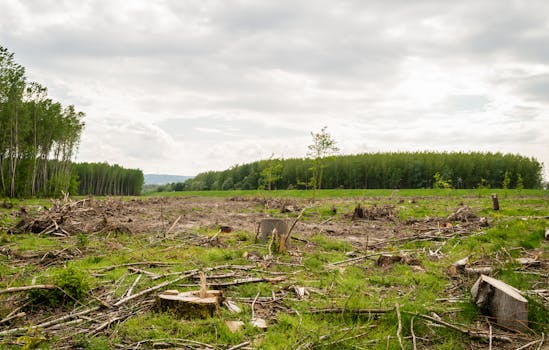
Introduction

Climate change has emerged as one of the greatest challenges of our time, with widespread implications for the planet’s ecosystems. The undeniable rise in global temperatures, driven largely by human activities and greenhouse gas emissions, is leading to dramatic alterations in climate patterns. This blog post will explore the manifold ways climate change impacts ecosystems across the globe, highlighting the urgent need for acknowledgment and action.
Loss of Biodiversity

One of the most immediate impacts of climate change on ecosystems is the alarming loss of biodiversity. As temperatures fluctuate and weather patterns become more erratic, many species struggle to adapt to their changing environments. This struggle results in population declines and, in some cases, extinction. Various animals such as polar bears and corals are thermally stressed and their disappearance would have devastating effects on food webs and the overall health of ecosystems.
Habitat Disruption

Climate change alters habitats in various ways. In terms of forest ecosystems, increased temperatures leading to drought and wildfires are becoming the norm. Additionally, coastal ecosystems like mangroves and coral reefs face threats from rising sea levels and acidification due to increased carbon dioxide levels. This disruption not only puts species at risk but also diminishes the services that these ecosystems provide, such as storm protection and water filtration.
Changes in Species Interactions

As the climate continues to change, the interactions between species also evolve. The timing of migrations, breeding seasons, and blooming cycles are shifting, causing mismatches between predators and prey, as well as pollinators and flowering plants. These alterations can lead to unforeseen consequences, disrupting food webs and ecological balance and pushing ecosystems off balance.
Global Warming and Oceanic Changes

The effects of climate change are especially pronounced in ocean ecosystems. Increased atmospheric temperatures result in warmer ocean temperatures, instigating shifts in marine species distributions and the phenomenon known as coral bleaching. The natural beauty and biodiversity provided by coral reefs are in jeopardy, which invites financial uncertainty for coastal communities dependent on tourism as well as fisheries that rely on reef-based creatures.
Conclusion

The impact of climate change on global ecosystems is both profound and multifaceted, linking the fates of our natural systems with human activity and survival. Actively addressing climate change will require extensive cooperation and innovative solutions from all sectors of society. Our ability to maintain biodiversity, preserve critical habitats, and ensure the stability of ecosystem services will depend on our actions today. Let us advocate for urgent and concerted efforts to safeguard our natural world for generations to come.






